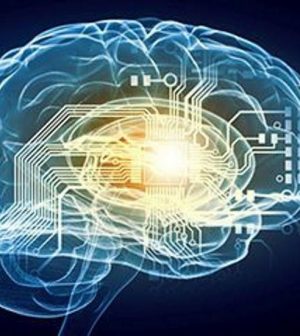- 10 Strategies to Overcome Insomnia
- Could Artificial Sweeteners Be Aging the Brain Faster?
- Techniques for Soothing Your Nervous System
- Does the Water in Your House Smell Funny? Here’s Why
- Can a Daily Dose of Apple Cider Vinegar Actually Aid Weight Loss?
- 6 Health Beverages That Can Actually Spike Your Blood Sugar
- Treatment Options for Social Anxiety Disorder
- Understanding the Connection Between Anxiety and Depression
- How Daily Prunes Can Influence Cholesterol and Inflammation
- When to Take B12 for Better Absorption and Energy
Scientists Untangle Why Diabetes Might Raise Alzheimer’s Risk

Type 2 diabetes may up the risk for Alzheimer’s disease by altering brain function, new animal research suggests.
A University of Nevada Las Vegas team showed that chronically high blood sugar could impair memory and alter aspects of working memory networks in rodents.
“Diabetes is a major risk factor for developing Alzheimer’s disease, but it is not clear why,” said study author James Hyman, an associate professor of psychology.
“We show that a central feature of diabetes, hyperglycemia, impairs neural activity in ways that are similar to what is observed in preclinical Alzheimer’s disease models,” Hyman said in a university news release. “This is the first evidence showing neural activity changes due to hyperglycemia overlap with what is observed in Alzheimer’s systems.”
Working with rats, the research team found that two parts of the brain central to forming and retrieving memories — the hippocampus and the anterior cingulate cortex — were “over-connected, or hypersynchronized” with type 2 diabetes.
When they need to access correct information and complete a task, these two brain areas, which are affected early in Alzheimer’s disease, were over-communicating with each other, causing errors, the researchers said.
“We know synchrony is important for different parts of the brain to work together. But, we’re finding more and more these days, that the key with neural synchrony is it has to happen at the right time, and it has to happen with control,” Hyman said. “Sometimes, there’s just too much ‘talking’ between certain areas and we think this leads to memory difficulties, among other things.”
He said it’s possible that Alzheimer’s patients have over-connection in some brain areas where there should be flexibility.
“In the models in our study, we’re seeing evidence of that in real-time at these crucial moments to do the task,” Hyman added.
Research on animals does not always produce the same results in humans.
The findings were published in the September issue of Communications Biology.
More information
For more on Alzheimer’s and diabetes, see the Mayo Clinic.
SOURCE: University of Nevada, Las Vegas, news release, Sept. 28, 2021
Source: HealthDay
Copyright © 2026 HealthDay. All rights reserved.










